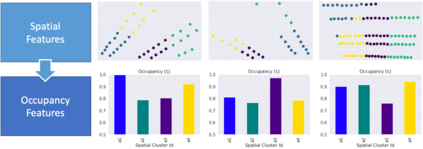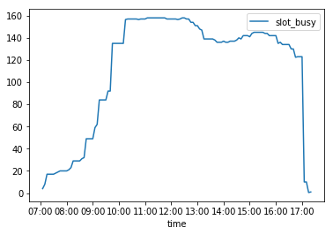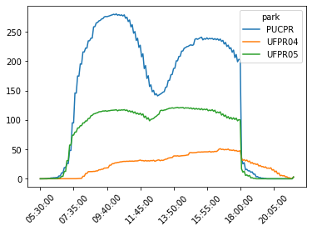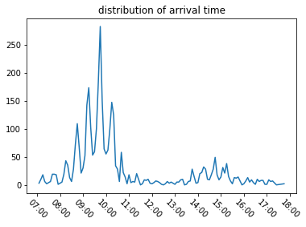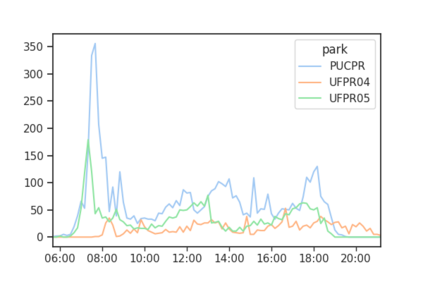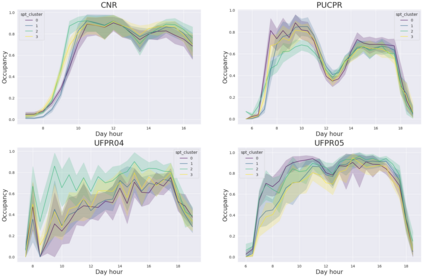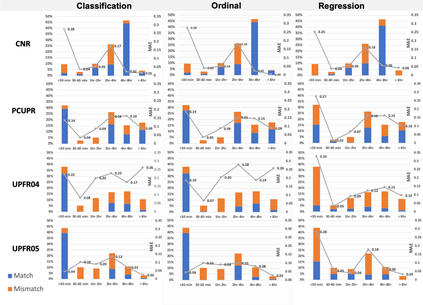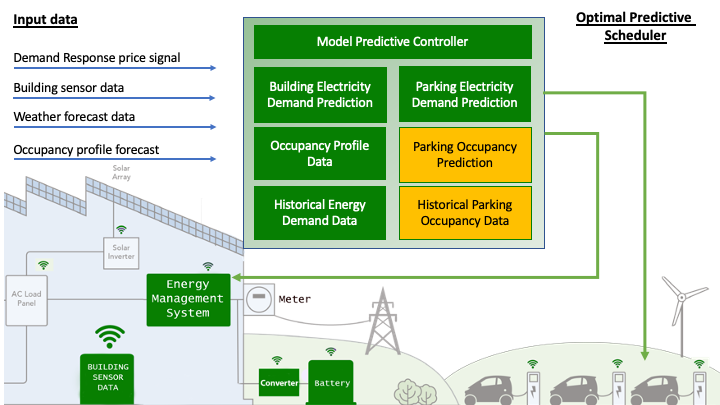The global electric car sales in 2020 continued to exceed the expectations climbing to over 3 millions and reaching a market share of over 4%. However, uncertainty of generation caused by higher penetration of renewable energies and the advent of Electrical Vehicles (EV) with their additional electricity demand could cause strains to the power system, both at distribution and transmission levels. Demand response aggregation and load control will enable greater grid stability and greater penetration of renewable energies into the grid. The present work fits this context in supporting charging optimization for EV in parking premises assuming a incumbent high penetration of EVs in the system. We propose a methodology to predict an estimation of the parking duration in shared parking premises with the objective of estimating the energy requirement of a specific parking lot, evaluate optimal EVs charging schedule and integrate the scheduling into a smart controller. We formalize the prediction problem as a supervised machine learning task to predict the duration of the parking event before the car leaves the slot. This predicted duration feeds the energy management system that will allocate the power over the duration reducing the overall peak electricity demand. We structure our experiments inspired by two research questions aiming to discover the accuracy of the proposed machine learning approach and the most relevant features for the prediction models. We experiment different algorithms and features combination for 4 datasets from 2 different campus facilities in Italy and Brazil. Using both contextual and time of the day features, the overall results of the models shows an higher accuracy compared to a statistical analysis based on frequency, indicating a viable route for the development of accurate predictors for sharing parking premises energy management systems
翻译:2020年全球电动汽车销售量继续超过预期,达到300万以上,达到市场份额4%以上。然而,可再生能源高渗透率和电力需求增加导致发电量的不确定性,可能给电力系统造成分配和传输水平的压力。需求响应和负载控制将使电网更稳定,可再生能源更渗透到电网中。目前的工作符合这一背景,即假定现有电动电动设备在系统内大量渗透,支持对停车场的EV进行优化。我们提出了一个方法,用以预测共用停车场的停车时间估计,目的是估计特定停车场的能源需求,评价最佳电动电动车的充电时间,并将时间安排纳入智能控制器。我们把预测问题正式化为监督机学习任务,以预测汽车离开车位前的停车时间长度。这一预测期限有助于能源管理系统在减少总电压需求时段期间分配电力。我们根据两个研究问题进行了实验,目的是查明拟议机器学习方法的准确性,以及用于估算特定停车场所需能源需求的最相关特点,目的是评估一个特定车场的车龄要求。我们用系统在预测2号系统上进行了不同的逻辑分析,并用不同的逻辑分析。



